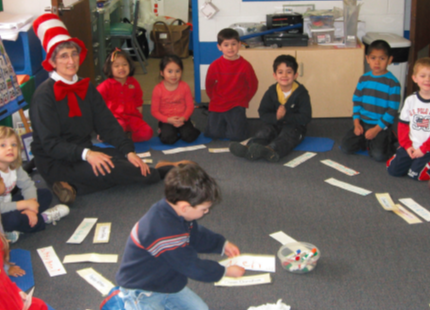About Our Program

Our curriculum emphasizes learning as an interactive process. The Child Development Lab’s environment is prepared for children to learn from active exploration and interactions with their peers and classroom materials. Children are encouraged to question, explore, and discover while developing self-confidence and social skills to succeed in school and in life. Together, the teachers, preschool children, and University students work and learn from each other to create a community of learners to enjoy and collaborate in discovering the world and to instill the foundation for life-long learning.
The curriculum is based on developmentally appropriate principles and practices to provide for the physical, emotional, social, language, literacy, and cognitive development of all children through an integrated approach. Play is the primary vehicle for the children’s learning and, thus, the cornerstone of the Child Development Lab program.
The Child Development Lab uses a centers approach to our classroom organization. The children may make decisions about which centers they would like to visit each day. Our centers include writing, art, math, science, blocks, puzzles and games, dramatic play, library, listening center, and music. Reading and writing materials for the children to use throughout the classroom are available in the centers. The teachers and our early childhood education students work with individual children and small groups at the centers to guide and support learning, exploration, and discovery. Whole class activities, such as a morning or afternoon meeting to start class and circle time, are included in the daily schedule.
The content of the curriculum is based on selected themes to follow the children’s interests and needs. Themes, curriculum units, and special activities are planned with attention to a wide range of developmental interests and abilities. The curriculum is implemented in a manner that reflects family home values, experiences, language, and community perspectives to enhance each child’s understanding and appreciation of people from various ethnic, cultural, and socioeconomic backgrounds. The Child Development Lab also follows the Massachusetts Guidelines for Preschool Experiences, Massachusetts Curriculum Frameworks, and National Association for the Education of Young Children guidelines to develop the curriculum, themes, and activities.
